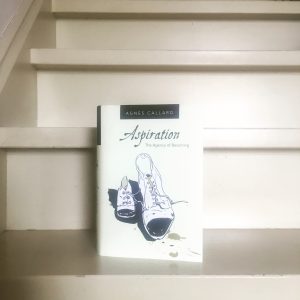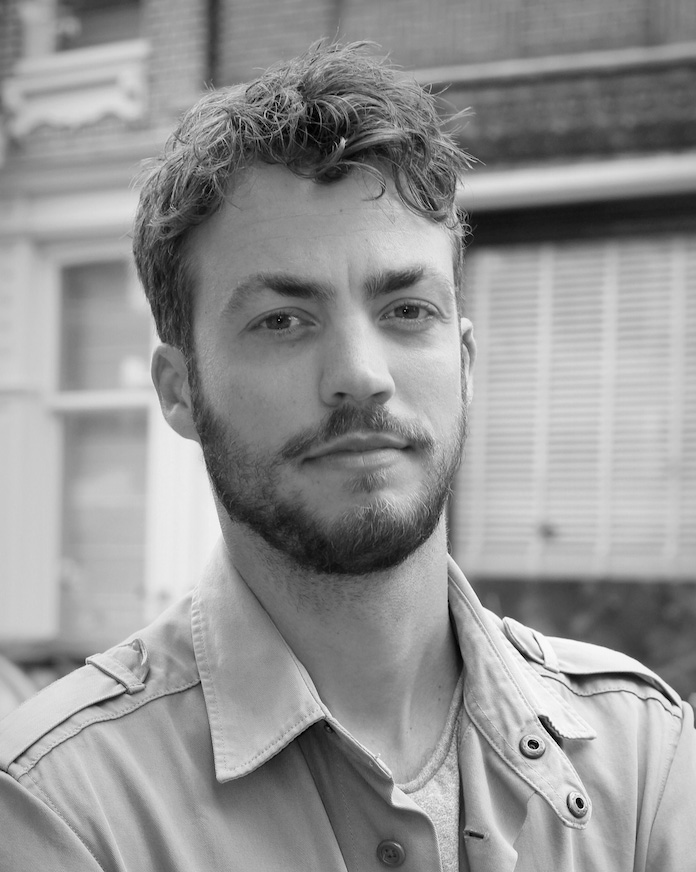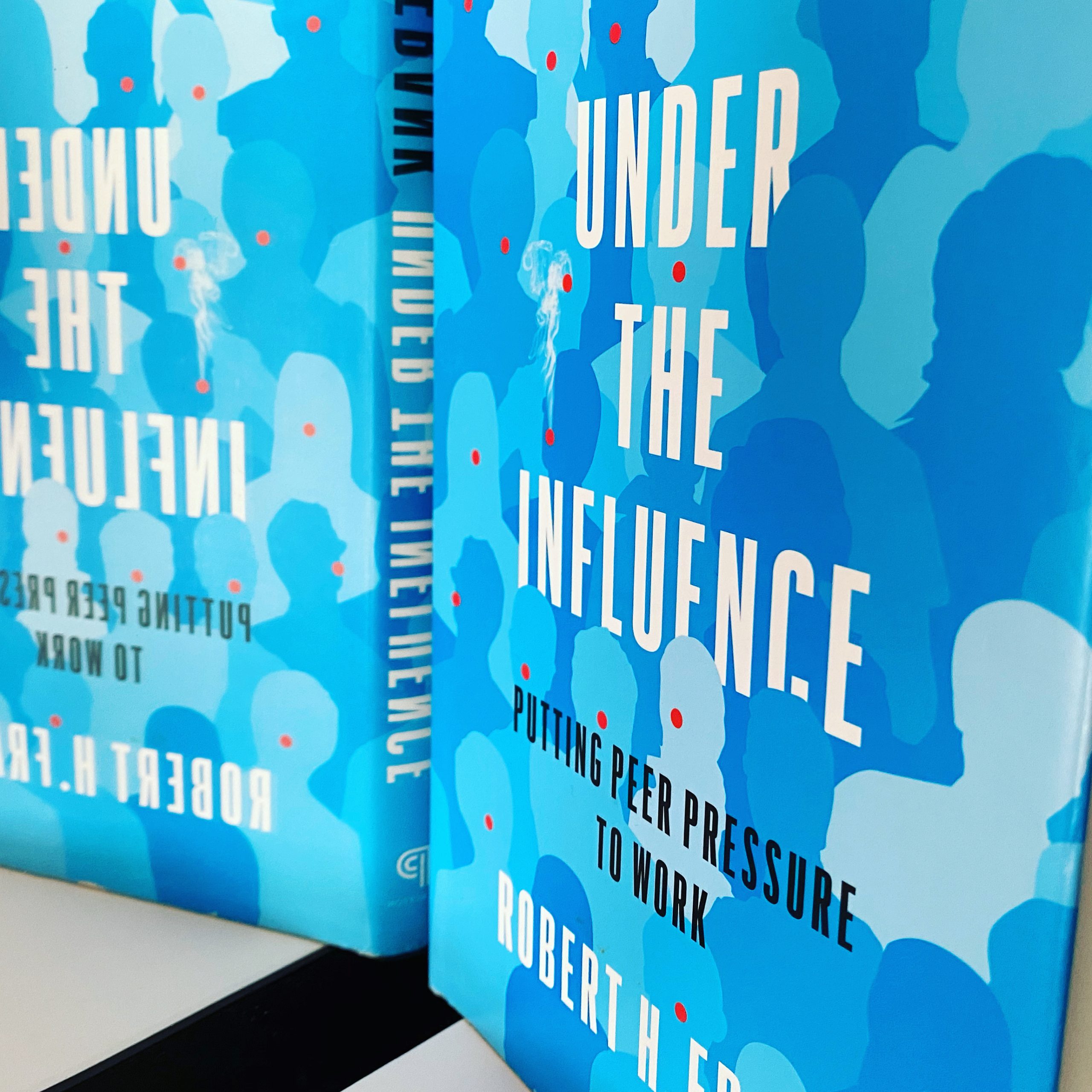"I saw, in all these different practices, some kind of artistic creature who uses science but also design and technology to re-investigate the relationship with the Earth."—Ruben Jacobs, in our interview about his new book Artonauts.
Aspiration: The Agency of Becoming A review of Agnes Callard's book Aspiration
In a recent article on aspirational living for the New York Times, How Goop’s Haters Made Gwyneth Paltrow’s Company Worth $250 Million, Taffy Brodesser-Akner writes: “I thought about the word ‘aspiration,’ how to aspire seems so noble, but how aspiration is always infused with a kind of suffering, and I smoked another cigarette.” She describes the phenomenon of the industry of aspiration, and the seeking to be better than you are through the acquisition of products, and so, it’s perhaps not surprising that she ends up where she does. “We are doomed to aspire for the rest of our lives,” she writes. “As soon as you level up, you greet how infinite the possibilities are, and it all becomes too awful to live without.”
Those clouds way up there, the ones we aspire to live amongst, sure do seem insulting to us in their beauty. At least, when viewed through that model of aspiration, which somehow requires of you to be somewhat disappointed in yourself to want to be better, and for you, preferably, to achieve your goals through the purchase of lifestyle goods and services. But is that really what we’re talking about?
 “Aspiration, as I understand it, is a distinctive form of agency directed at the acquisition of values,” writes Agnes Callard in her new book Aspiration: The Agency of Becoming. It is “rational, purposive value-acquisition.”
“Aspiration, as I understand it, is a distinctive form of agency directed at the acquisition of values,” writes Agnes Callard in her new book Aspiration: The Agency of Becoming. It is “rational, purposive value-acquisition.”
Callard’s book is academic philosophy, and as such, takes great care to dissect the definitions and context of everything under discussion. What’s important to focus on here, for a lucid understanding of something complex and detailed, are agency and values. Aspiration is an action of agency, which is to say that it’s something we actively choose to participate in, and it is in the direction of developing new values, so a matter of character development, rather than, for example, material gain, accomplishment, or recognition. It’s worth making these distinctions, because it places aspiration then in contrast with all the things it is not, like ambition, skill development, desire, or keeping up with Gwyneth Paltrow.

Even though there is, arguably, a cult of self-improvement these days, character development is somewhat out of fashion. Character itself has fallen out of curricula and conversation alike, perhaps because it’s so deeply tied to our authentic selves that we can hardly even discuss it without adding a hashtag, just to make sure everyone knows that we’re still cool and not taking ourselves too seriously. This has occurred to our deep moral hazard.
The key distinction between self-improvement and aspiration has to do with who it is that’s actually having the desire for development; is it me, as I am now, or is it the me of the future who I wish to become? In Callard’s words: “Someone who tries to make her desires more coherent derives guidance from the self she already has; the aspirant must take her bearings from the self she doesn’t have yet.” By nature, this makes it all but impossible to arrive at informed decisions for our aspirational selves by a rational, deliberative process. We cannot confer directly with our future, imagined selves, and so instead, we deliberate with our present selves, using the values that we currently hold along with the vague awareness that those values are somehow inadequate to us. At best, an aspirant can assess her movements “by way of immersing herself in the point of view she seeks to acquire.”

Callard describes the conflict that arises when values are at odds with each other—such as the values that we currently have with the values we hope to adopt—as intrinsic conflict. She gives as an example someone wishes to cultivate an appreciation for music, but who, in the period before that appreciation truly exists, by definition does not value it. This conflict is in the neighborhood of what the author Brodesser-Akner described in her New York Times article: she seems to genuinely yearn for the well-being that Paltrow’s brand peddles, but can’t get on board with the crazy-train of pseudoscience that accompanies it. Of course, there’s more than one road to Rome when it comes to achieving well-being, so it’s certainly not the case that anyone would need to choose a life full of drinking water “which is not stripped of ‘valuable electrons,’ which supposedly creates free radicals something something from the body’s cells.” Yet, there are evidently lifestyle choices at stake that put the author’s “old person” at odds with her “new person,” to use the phrasing of Ullmann-Margalit expressed in Callard’s book. These intrinsic conflicts illustrate to us what makes aspiration so difficult; we don’t know everything that we don’t know, before we know it.
The way of resolving intrinsic conflict, Callard asserts, is precisely by aspiring. Deliberation will not help us, so, “Instead of stepping back to a neutral point of view, aspirants step forward—little by little—into a state of lessened conflict.”
For all the aspiration angst that I recognize in Brodesser-Akner’s article, I find myself rather more aligned with Callard’s description of a purposeful walk forward, into the person I would like to become. Yes, that future self is shrouded in shadow, and I cannot know her fully from where I stand. Yes, it is deeply uncomfortable to be so uncertain, and even, to find myself at the bottom of a staircase that I previously did not know even existed. But perhaps I prefer aspiration optimism because I have already done the work of aspiring to take a position of greater comfort in uncertainty. Perhaps the ground floor of this staircase involves aspiring to aspire.

If there’s one thing that Callard emphasizes again and again in her book, it’s the state of ignorance innate to aspiration. While an ambitious person may need to learn a new skill to achieve her goal, for example, or to gather more information on a topic to be more effective, “the aspirant’s ignorance, by contrast, runs all the way down.” It’s lines like this through which Callard drips in warnings as to the stakes behind any aspirational project. It’s one thing to think of aspirational living as trying a new diet, or buying a fancy scented candle. It’s something else entirely to reckon with the deliberate process whereby you demolish a current value to make room for something new, which you cannot even see clearly.
Callard draws upon Neurath’s boat as an illustration of this existential project: “We are like sailors who on the open sea must reconstruct their ship but are never able to start afresh from the bottom.” In other words, we must keep enough of ourselves to stay afloat, but we also never start from scratch. To build new values, when we encounter a conflict, the old value must go. The words make it sound all too simple and easy; however to kill a value can feel very much like killing a part of one’s self. And, for an aspirational project, we will probably not even be certain what we are killing it for.
Faced with taking choices in a context of such uncertainty and ignorance, Callard advises a remedy, which makes intuitive sense but is nonetheless unexpected: “The aspirant needs others to help her with the project of grasping her goal.” More than other pursuits, aspiration requires reaching out, for others will have the grasp or the perspective that the aspirant lacks.
Aspiration’s academic approach, that is, one that presupposes an ungenerously critical reader, leads to writing that is determined to explain itself free of any logical loopholes. Even still, Callard’s passion for her subject comes through, and in the humane touches of her writing, we see hints towards some of the hard choices, deliberations, and aspirations that have materialized in her own life experience. Reading between the lines, one gets the sense both of the fancy footwork of her philosophical logic, and of her humbled acceptance of its impotence when it comes to the bloodsport of life.
Callard’s book offers a much-needed conversation piece to the dusty world of values and character. By focusing on aspiration, which is having a kind of heyday, albeit according to various colloquial and marketing meanings, she may be able to reach those who desire to aspire, without really being sure of their target. Ironically, it may be through the misguided pursuit of aspirational lifestyle goods that those who buy Callard’s book come to an understanding of what true aspiration is. And that’s okay. She may be offering exactly the ledge that their aspirational grasp is seeking.
Aspiration: The Agency of Becoming is published by Oxford University Press.


